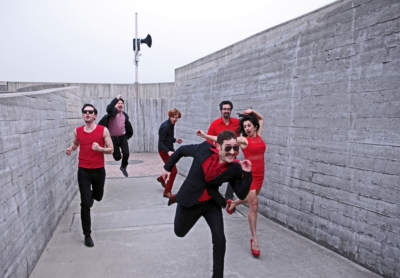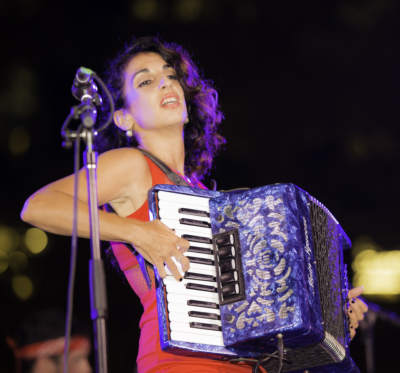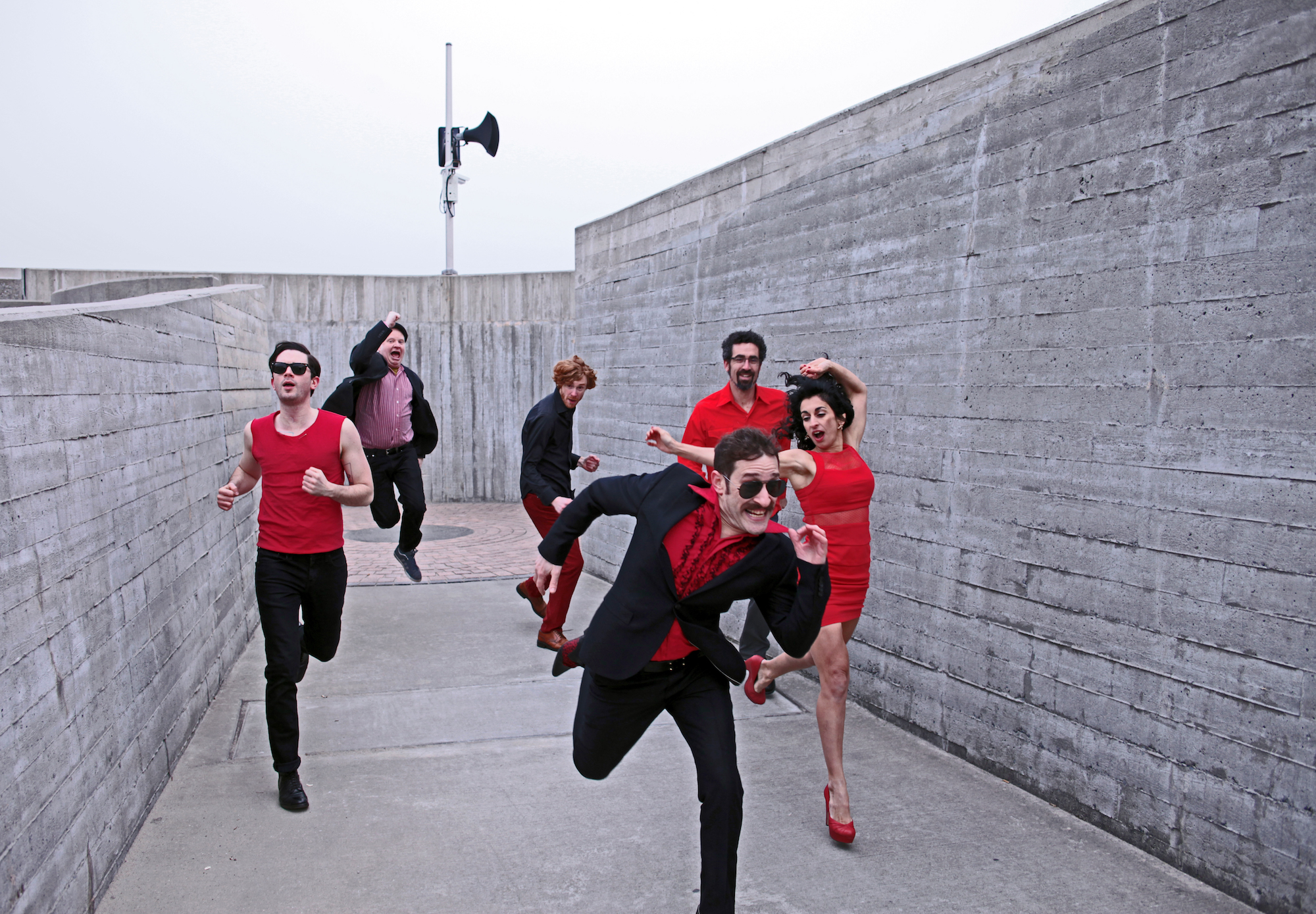Dozens donned tacky pink yarmulkes, danced the hora, and had a l’chaim at Drom in Lower Manhattan on Thursday, March 23 to celebrate the nuptials of the band Golem – and, well, it’s not really clear what that means.
The event, titled Golem Gets Married was an irreverent, gender-bending riff on an old Catskills tradition, ending the vacation season with a mock Jewish wedding. The event was complete with a chupah, flower girls, a toast from the father of the bride (or was it the groom?) and of course the seven blessings, which were said by mock Rabbi Aaron Diskin in the style of The Count from Sesame Street: “One blessing! Two blessings, three blessings…”

Annette Ezekiel Kogan, Golem’s accordion player and vocalist, answered some questions about the band and event.
Daniel Klein: So, to start out, tell us what is Golem?
Annette Kogan: Do you mean what is the golem (the mythical creature from Jewish folklore) or what is the band Golem?
DK: The band.
AK: We are most often described as a klezmer rock band. We most often play Jewish music from Eastern Europe from a long time ago, such as the nineteenth century and twentieth. But, we play it as if it’s being played today and listened to today, so kind of contemporary “neo-klezmer” style. We have a rock drummer with a much more rocking beat, we do a lot of theatrical screaming vocals, and we play the music with a lot of energy.
DK: Could you give us some examples of hundred-year-old songs you play?
AK: Well, “Tumbalaika,” the Hora, and general simcha (celebration) dancing. There is a favorite song we do called “Romania,” which was a hit in the 1920’s on Second Avenue, which was like the Yiddish Broadway. In recent years though, we’ve started doing a lot of original songs, which are in the same style but written by us.
DK: This is a bit of a unique concept. The klezmer-rock/modern Yiddish music world is a small one. How did you get into that?
AK: I was always interested in it. My grandparents spoke Yiddish but not my parents and not me. I kind of skipped a generation. But I was interested in the world that they came from, so I started learning Yiddish and getting really into it, as well as Russian and the history of the region. I also did music and dance and wanted to incorporate that into my interest as well. So I came to it through a historical language approach.

DK: And you play the accordion. That’s a pretty unique instrument, too. How did you get into that?
AK: I grew up playing classical piano. It was easy to learn because the keyboard is the same. I was also doing Ukrainian dancing, and they always had an accordion playing as an accompaniment so I really loved the sound. The accordion is in so much of Eastern European music. It seemed like the logical instrument for me to learn to play in a band. It’s had kind of a renaissance recently. There is always an article about making the accordion not so lame these days.
DK: So, tell us about Golem Gets Married.
AK: It’s very different than our regular shows where we play our Yiddish music and our originals. We also play a lot of Jewish weddings, and this is the Jewish wedding as a performance. It comes from an old Catskills tradition. Apparently, in the hotels, they used to, on Labor Day weekend, have a fake wedding. They would have people dressed up in drag and have a fake rabbi and everything. So, I read about that and thought, is that something we can do? So we have a chupah and a ceremony, a rabbi and a bride and groom, yarmulkes, a fake wedding cake, parents of the bride and groom. It’s hilarious. Then we play what we play. The chupah music, simcha tunes… We show the traditional side that we do and then we play a big dance party for everyone there. We also mix regular rock covers with our own Eastern European stuff. It’s a real mix.
DK: What’s next for Golem? What are the plans for the future?
AK: We are going to keep writing music and keep doing what we are doing. We don’t have a plan to change too much. We want to do more videos and more recording.
David Klein is a student at the Columbia School of Journalism.

